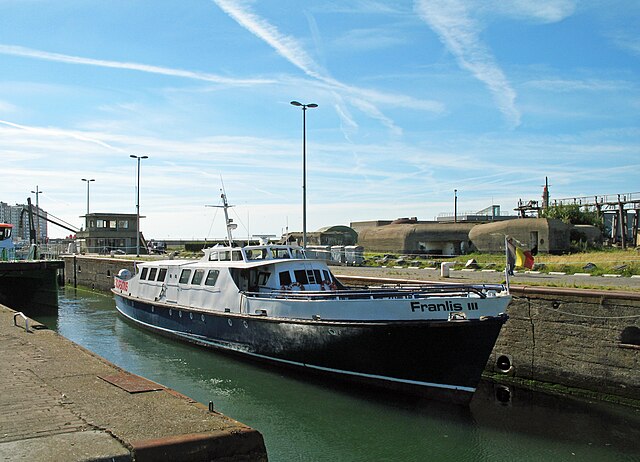Canadian Fairmile B motor launch
The Canadian Fairmile B was a motor launch built during the Second World War for the Royal Canadian Navy. They were adaptations of the British Fairmile B motor launch design incorporating slight modifications for Canadian climatic and operational conditions. Eighty-eight were built in Canada for service with the Coastal Forces of the Royal Canadian Navy in home waters, of which eight were supplied to the United States Navy.
HMC ML Q050 was the first of a series of wooden Canadian-built Fairmile B delivered to the Royal Canadian Navy (RCN) on 18 November 1941
Belgian excursion vessel Franlis III (Ex HMC ML Q118) in the port of Ostend (Belgium)
Image: HMC ML Q050
Image: ML Q051
Coastal Forces of the Royal Canadian Navy
The Coastal Forces of the Royal Canadian Navy (RCN) was a specialized naval force of well-armed, small and fast motor launch (ML) and motor torpedo boat (MTB) flotillas, primarily manned by members of the Royal Canadian Naval Volunteer Reserve (RCNVR). Tasked with escort, coastal defence, anti-submarine, minesweeping and search and rescue duties, the Coastal Forces of the RCN contributed to securing Allied sea lines of communication off the coasts of Canada and Britain during the Second World War.
MTB 460
HMC ''ML Q050'' was the first of a series of wooden Canadian-built Fairmile B motor launch (ML) boats delivered to the Royal Canadian Navy (RCN) on 18 November 1941
MTB 459 of the 29th Canadian MTB Flotilla
MTB 726






